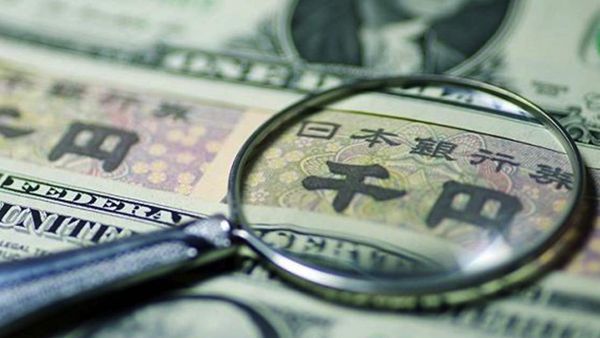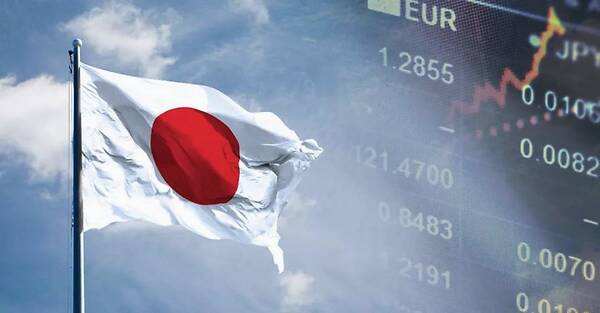On the 29th, as expected, the Bank of Japan kept interest rates unchanged and lowered its economic growth and inflation expectations for fiscal year 2020. Analysts believe that the Central Bank of Japan is hard to do more in the near future, while the fiscal stimulus plan is expected more.
Short term economic expectations down
The Bank of Japan lowered its forecast for economic growth and inflation in fiscal year 2020 on the 29th, as the world economic recovery was clouded by the aggravation of the epidemic situation of the new crown overseas.
In its quarterly economic outlook report, the Bank of Japan lowered its GDP growth forecast from - 4.7% to - 5.5%, and its core inflation forecast from - 0.5% to - 0.6%, and expected short-term and long-term interest rates to remain at current or even lower levels.
The Bank of Japan said the Japanese economy has recovered, Japanese imports and exports are picking up, and auto related exports are temporarily increasing. Supported by government measures, private consumption is also increasing. But prospects for economic activity and prices are "very uncertain.". In addition, we need to pay close attention to financial system risks.
Affected by the novel coronavirus pneumonia, Japan's economy has also experienced the most serious shrinkage since the end of the Second World War. Although the Japanese economy hit bottom in 4-6 months, consumption, especially the consumption of services, is rather weak, and this situation may continue for some time.
For the sixth consecutive month, Japan's tourism industry saw a year-on-year drop of more than 99% in the number of foreign tourists. In September, Japan received only about 13700 foreign tourists. Affected by domestic travel discounts, core consumer prices fell for two consecutive months in September. The International Monetary Fund recently released a forecast that Japan's GDP this year may be 4.8 trillion US dollars, which will fall below the 5 trillion US dollar mark.
Analysts believe that the novel coronavirus pneumonia bank's growth rate of economic growth in the fiscal year has been reduced from 4.7% to 5.5%, reflecting the public's renewed concern about the new crown pneumonia epidemic. And the central bank's decision to keep monetary policy unchanged may also reflect the continued recovery of Japan's economy from a record contraction.
Novel coronavirus pneumonia is expected to continue to improve as the economic activity returns and the impact of the new crown pneumonia weakened, according to the Bank of Japan's quarterly outlook report on the future economic growth prospects. On the same day, the Bank of Japan raised its GDP and inflation expectations for next year. It is estimated that GDP growth in fiscal year 2021 will be 3.6%, higher than the previous 3.3%; GDP growth in fiscal year 2022 will be 1.6%, also higher than the previous 1.5%.
Fiscal stimulus expected
28, a novel coronavirus pneumonia, Japan's prime minister, will announce a new round of stimulus plan to tackle the new economic impact of the crown pneumonia next week, a Reuters report quoted four Japanese government and ruling party sources.
According to these sources, the new stimulus plan is likely to continue subsidies to enterprises to help ease financial pressure and avoid layoffs; it may also continue to provide discounts for domestic tourism until January next year, so as to promote domestic tourism and help the tourism industry tide over the difficulties. Japan has launched two economic stimulus plans to deal with the epidemic this year, with a total fund of about 22 trillion yen. The source said the total amount of funds for the new stimulus plan may be less than 22 trillion yen. One of the sources said it would be better to avoid increasing short-term spending too much so as not to make "Japan's fiscal cliff steeper.". They said that there are still 7 trillion yen left in the 10 trillion yen emergency anti epidemic fund previously allocated by the Japanese government, which will form part of the funding source of the new stimulus plan, and the rest will be new expenditure.

Novel coronavirus pneumonia is now being pushed by Japan's central bank, which is now unable to further raise prices through monetary policy, says Renku Honaoya, senior economist at SuMi TRUST. "Japan's prime minister, Yoshi Kan's main policy driver should be deregulated fiscal policy and put monetary policy aside."
Mr Kan said more measures were needed in the budget area to help the economy recover, but the media did not disclose more information.
According to Reuters, Japan's continued downturn in consumption and capital expenditure has offset the recovery of import and export, and the overall economic recovery is "fragile". The government is under pressure and needs to increase financial and monetary support. However, some Japanese analysts believe that the new stimulus plan's ability to boost the economy may be limited.
Stable monetary policy
At the end of its monetary policy meeting on the 29th, the Bank of Japan announced that it would cut its GDP growth and inflation expectations for fiscal year 2020. This time, the Bank of Japan continued to keep the interest rate unchanged at - 0.1% with a voting ratio of 8:1, and kept the yield target of 10-year Treasury bonds at around 0%, all in line with market expectations.
At an afternoon news conference, the governor of the Bank of Japan continued to emphasize that the central bank is ready to take further action if necessary. He said that it is necessary to carefully monitor the development of overseas economies and pay close attention to the situation of emerging economies. Both the economy and prices are facing downward risks, and the economic prospects will depend on the epidemic situation. But novel coronavirus pneumonia has also reaffirmed many optimistic information, which indicates that the central bank's new crown pneumonia epidemic response measures have produced results. Once the market is more stable, it will discuss the launch of ETF (trading open index fund). He said low interest rates were positive for households as a whole. He also said that Japan's economy has begun to recover, consumption has begun to recover, and the central bank will continue to keep the inflation target at 2% for some time to come. As for overseas markets, he believes that the U.S. economy is recovering steadily, China's economy is growing steadily, the European economy is on the track of improvement, and developed economies have enough policy space to respond. He also said that the stock market bubble could not be simply considered.
Given that the recession caused by the new outbreak may take years to eliminate, analysts believe the Bank of Japan will extend the March deadline for its crisis response plan, with a decision expected to be made in December or January. For now, the BoJ will focus on the recent rebound in exports and output to see if it can offset weakness in consumption and capital spending.


